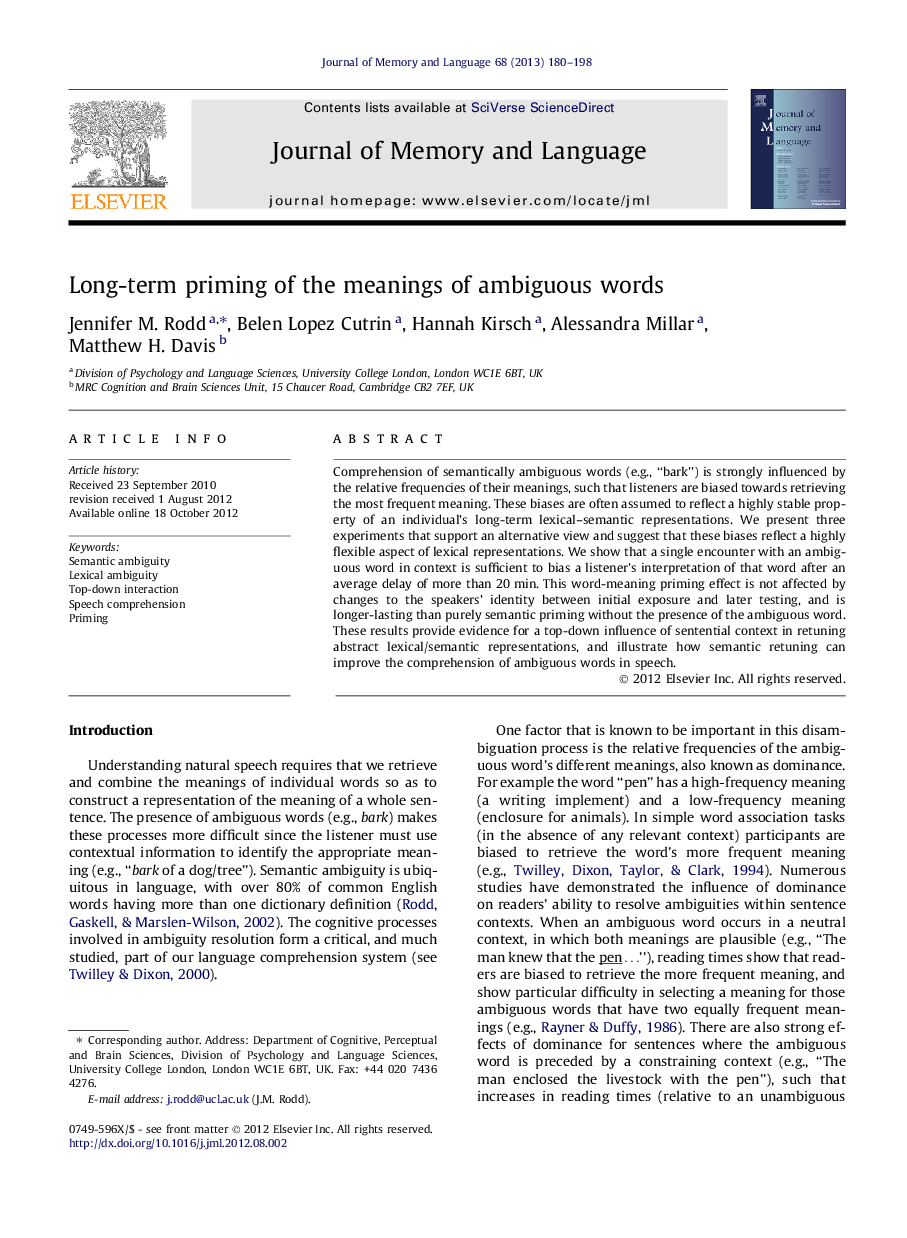| Article ID | Journal | Published Year | Pages | File Type |
|---|---|---|---|---|
| 931928 | Journal of Memory and Language | 2013 | 19 Pages |
Comprehension of semantically ambiguous words (e.g., “bark”) is strongly influenced by the relative frequencies of their meanings, such that listeners are biased towards retrieving the most frequent meaning. These biases are often assumed to reflect a highly stable property of an individual’s long-term lexical–semantic representations. We present three experiments that support an alternative view and suggest that these biases reflect a highly flexible aspect of lexical representations. We show that a single encounter with an ambiguous word in context is sufficient to bias a listener’s interpretation of that word after an average delay of more than 20 min. This word-meaning priming effect is not affected by changes to the speakers’ identity between initial exposure and later testing, and is longer-lasting than purely semantic priming without the presence of the ambiguous word. These results provide evidence for a top-down influence of sentential context in retuning abstract lexical/semantic representations, and illustrate how semantic retuning can improve the comprehension of ambiguous words in speech.
► Hearing ambiguous words in sentences biases their interpretation after 20 min. ► Word-meaning priming is not affected by change in speaker identity. ► Word-meaning priming is longer lasting than purely semantic priming. ► Semantic retuning can improve the comprehension of ambiguous words.
